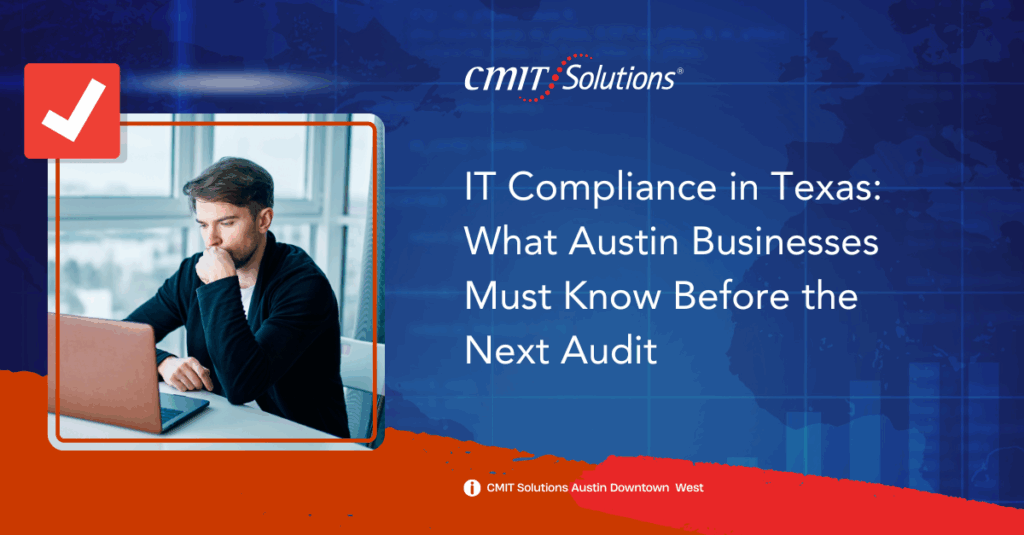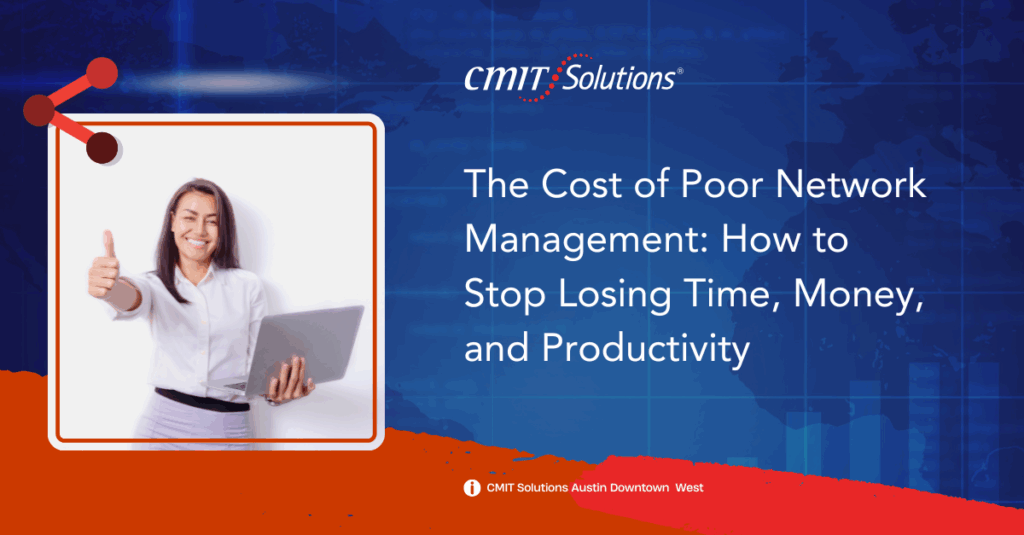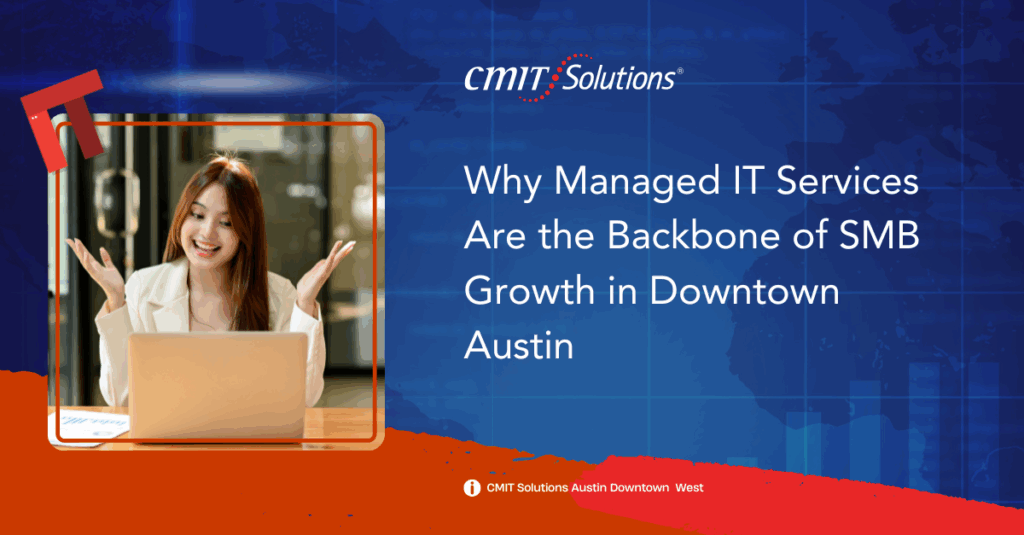Introduction: The End of Passwords as We Know It
Passwords have protected businesses for decades but in 2025, they’re no longer enough. Austin’s small and midsize businesses are experiencing an explosion of cyberattacks targeting weak or reused passwords. Hackers exploit human error faster than companies can reset credentials.
Forward-thinking organizations in Austin are taking the next step toward stronger security: adopting biometric authentication and multi-factor authentication (MFA). These technologies are revolutionizing how companies protect accounts, systems, and sensitive data.
As local companies embrace digital transformation, replacing traditional logins with secure, identity-based access is becoming a top priority.
- Passwords remain the weakest link in most security systems.
- MFA and biometrics reduce human error and credential theft.
- Austin’s modern workforce demands faster, safer login methods.
- Moving beyond passwords enhances both user experience and compliance.
Why Passwords No Longer Work
Even the best password policies can’t keep up with today’s threat landscape. Phishing, credential stuffing, and dark web leaks have made passwords easy prey. Worse, employees often reuse them across multiple platforms, giving attackers instant access to business data.
Local companies relying solely on passwords face growing risks of breach. Many are turning to AI cybersecurity systems that identify compromised accounts automatically, allowing them to transition safely to passwordless authentication.
- 80% of breaches involve weak or stolen credentials.
- Phishing attacks are increasingly automated and AI-enhanced.
- Complex password requirements frustrate users and reduce compliance.
- MFA provides real-time protection without complicating workflows.
How Biometric Authentication Changes the Game
Biometrics use physical traits fingerprints, facial recognition, voice, or even behavioral patterns to verify identity. For Austin businesses, biometric solutions eliminate the need for memorized credentials while offering unparalleled accuracy and convenience.
When combined with managed IT services, biometric systems can be securely deployed across devices and networks, providing end-to-end control over access management.
- Fingerprint and face scans replace vulnerable passwords.
- Biometric identifiers are unique and nearly impossible to replicate.
- Encryption and secure device hardware protect stored biometric data.
- MFA combined with biometrics enhances security and user trust.
The Rise of Multi-Factor Authentication (MFA)
MFA adds layers of protection by requiring multiple forms of verification something you know (password), something you have (token or mobile app), and something you are (biometric). This simple approach blocks over 99% of common account hacks.
Businesses in downtown Austin are deploying MFA through zero trust security frameworks, ensuring every login request is verified, regardless of device or location.
- MFA combines passwords, mobile codes, and biometrics.
- One-time tokens prevent credential reuse across sites.
- Adaptive MFA adjusts security levels based on risk.
- Centralized dashboards simplify user and access management.
Why Austin Businesses Are Making the Switch
The shift toward passwordless systems isn’t just about cybersecurity it’s about smarter workflows. Austin’s fast-paced environment rewards efficiency, and MFA and biometrics reduce login friction while strengthening security posture.
Companies using cloud innovation now integrate MFA directly into cloud applications, streamlining authentication across multiple platforms and remote users.
- Employees log in faster and with fewer errors.
- IT departments spend less time resetting passwords.
- Businesses reduce downtime caused by security incidents.
- User-friendly authentication improves adoption rates.
Compliance and Regulatory Benefits
Cybersecurity isn’t just a choice it’s a legal responsibility. Austin businesses subject to industry standards like HIPAA, PCI-DSS, or SOC 2 must implement strong access controls.
By adopting IT compliance in Texas strategies, companies ensure biometric and MFA systems align with federal and state guidelines, reducing audit risk and demonstrating proactive security practices.
- MFA meets compliance for financial, healthcare, and government sectors.
- Secure authentication protects customer and employee data.
- Regulatory alignment builds digital trust and credibility.
- Compliance automation simplifies reporting and documentation.
Protecting Remote and Hybrid Teams
As hybrid work becomes Austin’s norm, remote endpoints are prime targets for cyberattacks. Employees logging in from coffee shops or home networks expand a company’s digital footprint and potential attack surface.
That’s why businesses integrating unified communications with MFA gain an advantage: secure, seamless access across communication tools, ensuring employees collaborate safely no matter where they work.
- MFA and biometrics protect logins on personal and company devices.
- Remote access tools enforce encryption and verification.
- Endpoint management keeps hybrid work compliant and secure.
The Role of AI and Automation in Access Control
Artificial intelligence is making MFA smarter and more adaptive. Instead of static verification, modern systems learn user behavior recognizing login patterns, devices, and even typing speed to flag unusual activity automatically.
Businesses integrating AI-driven productivity benefit from automation that identifies anomalies, speeds up approvals, and prevents breaches before they happen.
- AI-based MFA adapts authentication to risk level.
- Automation reduces manual IT intervention.
- Behavioral analytics enhance security accuracy.
- Real-time insights improve threat response time.
Data Privacy and Digital Trust
Switching to biometrics and MFA also improves customer and employee confidence. Strong security measures demonstrate a company’s commitment to safeguarding sensitive data.
Austin organizations embracing digital trust frameworks communicate transparency and accountability—key factors in today’s digital economy.
- Transparent privacy policies reassure clients and staff.
- Encrypted biometric storage protects identity data.
- Regular security audits ensure compliance and integrity.
- Trust drives stronger business relationships.
Backup and Recovery in a Passwordless World
Even the most secure systems need contingency planning. Biometric data and MFA configurations should be backed up and easily recoverable during outages or transitions.
Companies with strong data backup and disaster recovery strategies ensure continuity of operations, even if authentication systems experience downtime.
- Encrypted backups secure critical user credentials.
- Redundant storage prevents authentication loss.
- Cloud recovery accelerates system restoration.
- Proactive planning minimizes disruptions.
Partnering with Austin’s Cyber Experts
Transitioning to passwordless authentication requires more than new software—it demands strategic implementation. Austin businesses partnering with managed IT services receive expert deployment, security training, and 24/7 monitoring to ensure smooth transitions.
A local IT partner understands Austin’s business ecosystem, regulatory environment, and cybersecurity challenges delivering customized solutions that scale with growth.
- Professional setup ensures compliance and data protection.
- Continuous monitoring prevents authentication failures.
- Local experts deliver fast, responsive support.
- Managed partnerships simplify digital transformation.
Conclusion: A Future Without Passwords
The password era is ending and Austin is leading the way. Businesses that embrace biometric and multi-factor authentication gain stronger protection, smoother user experiences, and increased trust among clients and employees alike.
By combining AI cybersecurity, data backup, cloud innovation, and managed IT services, Austin businesses can build a passwordless ecosystem that’s fast, secure, and future-ready.
- MFA and biometrics redefine business security in Austin.
- Strong authentication builds long-term customer trust.
- Cloud-based solutions enhance flexibility and compliance.
- The future of cybersecurity is password-free and Austin is ready.







